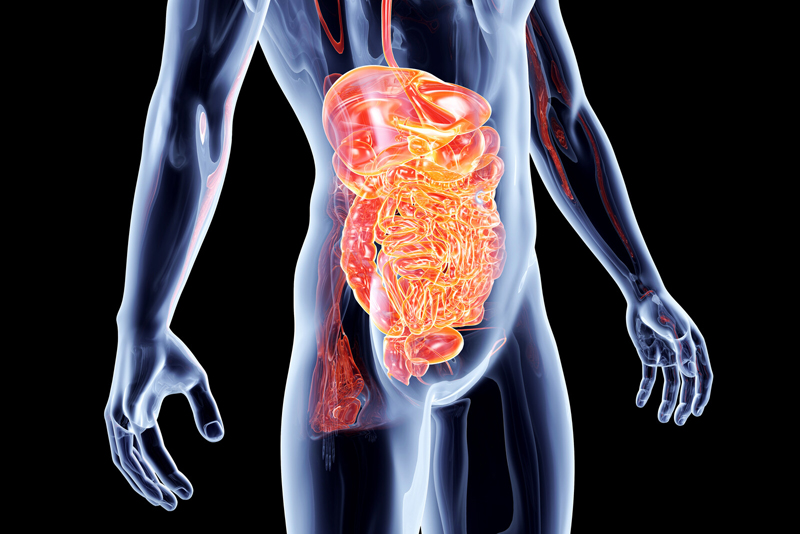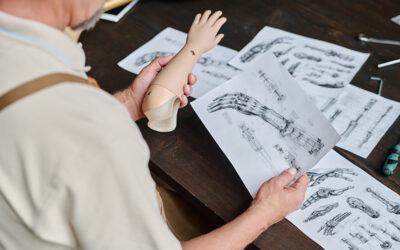Diverticular disease is a common gastrointestinal condition encountered by primary care physicians and gastroenterologists. It occurs as people age. While diverticulosis occurs when pouches (diverticula) develop in the wall of the colon, diverticulitis refers to the condition when these pouches become inflamed or infected. Studies suggest that about 35 percent of U.S. adults age 50 years or younger have diverticulosis, while about 58 percent of those older than age 60 have diverticulosis (www.niddk.nih.gov). Diverticular disease can be categorized as uncomplicated disease, uncomplicated recurrent or smoldering disease, and complicated disease. As the symptoms of diverticulitis are similar to other gastrointestinal conditions, as well as certain gynecological or urological conditions, differential diagnosis may need to be performed. Physicians can rely on a family practice billing company to report the right ICD-10 codes.
Diverticulitis Risk Factors and Symptoms
Age is the biggest risk factor for diverticulitis. Other risk factors include smoking, a history of constipation, obesity, lack of exercise, long-term use of non-steroidal anti-inflammatory drugs (NSAIDs) and aspirin, gender, genetics, and diet.
Diverticula can develop in the esophagus, stomach, small intestine but most commonly, it appears in the large intestine. Most people with diverticulitis do not have any symptoms. The condition is called diverticular disease when it causes symptoms.
Common symptoms include:
- Changes in bowel movement patterns
- Cramping or pain in the abdomen
- Bloating or gas
- Fever and general malaise
- Nausea
- Loss of appetite
Diverticulitis may lead to several complications such as bleeding, peritonitis or the spilling of waste into the abdominal cavity, bowel obstruction, abscess and fistula. Diverticular bleeding occurs when a small blood vessel within the wall of a pouch, bursts. This can lead to blood in the stools.
In most cases, physicians can diagnose acute diverticulitis on the basis of the history and physical examination. Laboratory tests may be performed to rule out other causes of abdominal pain or other symptoms. A CT scan of the abdomen is considered the best imaging study to confirm the diagnosis.
Documentation
The physician documentation in the medical record determine the coding and sequencing for diverticulosis and diverticulitis. An AAPC article explains that documentation elements for diverticulitis are: location (small intestine, large intestine, or small and large intestine), and any manifestations or complications.
ICD-10 Codes for Diverticular Disease
A 2015 article from the American Academy of Family Physicians (AAFP) points out that when documenting and coding for GI disorders in ICD-10, primary care physicians need to think of their patients as belonging to one of two groups: 1) those with a known diagnosis or 2) those presenting with signs or symptoms prior to a documented diagnosis.
If a patient presents with known diverticular disease and classic diverticulitis findings, sign and symptom codes or a diverticulitis code can be used. The ICD-10 codes for diverticular disease of intestine, or diverticulitis fall under K57. The codes include location (small, large or small and large intestine), with or without perforation or abscess, and with or without bleeding:
| K57.00 | Diverticulitis of small intestine with perforation and abscess without bleeding |
| K57.01 | Diverticulitis of small intestine with perforation and abscess with bleeding |
| K57.12 | Diverticulitis of small intestine without perforation or abscess without bleeding |
| K57.13 | Diverticulitis of small intestine without perforation or abscess with bleeding |
| K57.20 | Diverticulitis of large intestine with perforation and abscess without bleeding |
| K57.21 | Diverticulitis of large intestine with perforation and abscess with bleeding |
| K57.32 | Diverticulitis of large intestine without perforation or abscess without bleeding |
| K57.33 | Diverticulitis of large intestine without perforation or abscess with bleeding |
| K57.40 | Diverticulitis of both small and large intestine with perforation and abscess without bleeding |
| K57.41 | Diverticulitis of both small and large intestine with perforation and abscess with bleeding |
| K57.52 | Diverticulitis of both small and large intestine without perforation or abscess without bleeding |
| K57.53 | Diverticulitis of both small and large intestine without perforation or abscess with bleeding |
| K57.80 | Diverticulitis of intestine, part unspecified, with perforation and abscess without bleeding |
| K57.81 | Diverticulitis of intestine, part unspecified, with perforation and abscess with bleeding |
| K57.92 | Diverticulitis of intestine, part unspecified, without perforation or abscess without bleeding |
| K57.93 | Diverticulitis of intestine, part unspecified, without perforation or abscess with bleeding |
Using Sign and Symptom Codes
ICD-10 recommendations on using sign and symptom codes are as follows: “While specific diagnosis codes should be reported when they are supported by the available medical record documentation and clinical knowledge of the patient’s health condition, there are instances when signs/symptoms or unspecified codes are the best choices for accurately reflecting the health care encounter. If a definitive diagnosis has not been established by the end of the encounter, it is appropriate to report codes for signs and/or symptoms in lieu of a definitive diagnosis”.
The AAFP article gives examples of ICD-10 sign and symptoms codes that may be reported for a patient with symptoms of a cute diverticulitis, K57.32, as:
- R10.32, Left lower-quadrant pain
- R10.814, Left lower-quadrant tenderness
- R19.11, Absent bowel sounds
- D72.820, Lymphocytosis
With proper clinical documentation, coders in a physician billing company can help physicians report diverticular disease using the right codes. Proper code selection is essential to maximize reimbursement and avoid denials.




